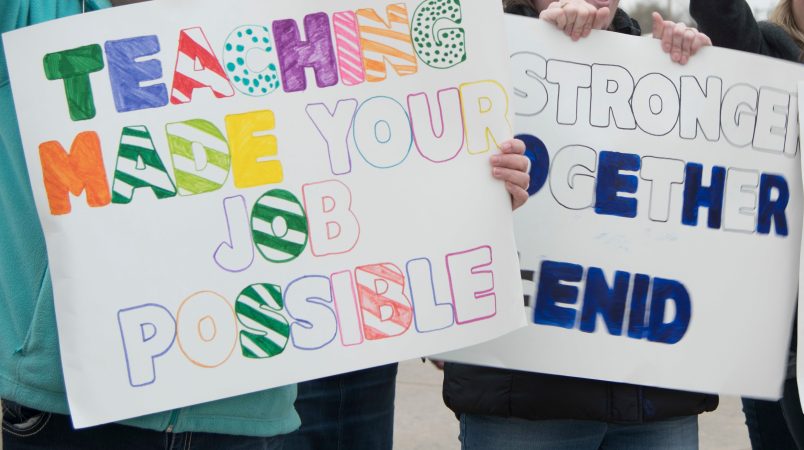TOPEKA, Kan. (AP) — The Kansas Supreme Court Monday ruled for the third time in two years that the state’s spending on public schools is inadequate despite an increase approved earlier this year, but gave the state another year to come up with more funding.
The high court rejected arguments from the state that a new law phasing in a $548 million increase in funding over five years is enough to provide a “suitable” education for every child as specified in the state constitution. But in a nod to the Legislature’s efforts, the court delayed its mandate until June 30, 2019, or until further order of the court.
The court said that by making “financial adjustments” the state can satisfactorily address the remaining issues. Those include changes addressing inflation.
Four school districts that sued the state in 2010 argued that the increase still left the state as much as $1.5 billion a year short of what was necessary.
The state now spends more than $4 billion a year on aid to its 286 local school districts.
The Republican-controlled Legislature boosted income taxes last year to close projected budget shortfalls, but part of the hike went to increase spending on public schools in response to a March 2017 order from the court. But the justices declared in October that the higher amount still wasn’t enough to comply with the state constitution.
Lawmakers and Republican Gov. Jeff Colyer were looking this year to increase education funding without raising taxes — and they’ve been aided by a year of monthly surpluses in tax collections. But a majority of the seven justices were openly skeptical that the new law was adequate during a hearing in May.
The four school districts that sued pointed to an academic study this year that said improving Kansas’ schools could cost almost $2.1 billion more a year, depending on the state’s ambitions.
GOP leaders commissioned the study and were taken aback by its conclusions. It gave them estimates based on big improvements in students’ scores on standardized English and math tests. The highest funding estimate was based on reaching a 95 percent high school graduation rate, something no state has achieved.
Kansas has been in and out of school funding lawsuits for several decades. The state constitution requires legislators to “make suitable provision for finance” of the state’s “educational interests,” and the Supreme Court has ruled it’s a requirement to ensure that all children receive a suitable education, regardless of whether they live in rich or poor areas.







So can they do a thing like no child left behind where if the legislature fails to obey the state constitution for three years in a row, the court can declare it “failing” and replace everyone?
“Still, we remain dedicated to Republican government in this state,” one Kansan said. “To own the libs.”
Kansas clearly wasn’t thinking about “free-market” orthodoxy when they drafted their constitution. Putting educational provisions in the state’s founding document is really not good if you want to deregulate/defund public schools. Clearly, Kansans are not true free-marketers. After all, Free-Market Capitalism cannot fail. It can only be failed.
You want to attract rural Americans, you do it by helping them improve their schools. Since Brown v. Board we have all assumed that white schools are adequate and black schools are inadequate. I have news for a lot of you, but in much of rural America there is equality in education. It sucks. In Missouri and other states rural school districts are talking about going to a 4 day school week. They have all kinds of happy justifications for the move, but make no mistake they just don’t have the money to pay teachers for a full work week. We just aren’t turning out educated kids, white, black or brown. The reason is in a lot of states, mostly red states, rural schools aren’t being funded. Instead money needed for education is being returned to taxpayers in the form of tax cuts.
That is what the Kansas Supreme Court is fighting. The Kansas State Constitution says all kids have a constitutional right an adequate education. The Brownback tax cuts deprived Kansas students of their right to an adequate education. Show rural voters the Democratic party cares about education and the Democratic party will be rewarded.
Bear with me. California, along with pretty much every state in the union, has a State Constitutional requirement to pass a balanced budget each year by June 15th. Problem though, there was no or else clause attached to that, so it never happened. Eventually, voters got fed up. Proposition 25, the On-Time Budget Act of 2010, amends the State Constitution to include an or else clause. Every day after June15th that the Legislature fails to pass a balanced budget, state legislators do not get paid – no salary and no reimbursement for expenses. California now has a state surplus. Kansas needs an or else clause in their State Constitution.